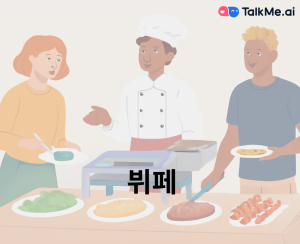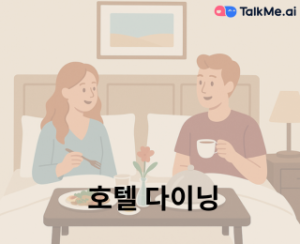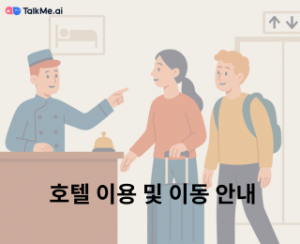If you’ve ever watched a K-drama or followed a K-pop group, chances are you’ve heard the term “unnie” more than once. In Korean, titles and honorifics are essential tools in communication — not just for politeness, but for expressing relationships, social hierarchy, and intimacy.
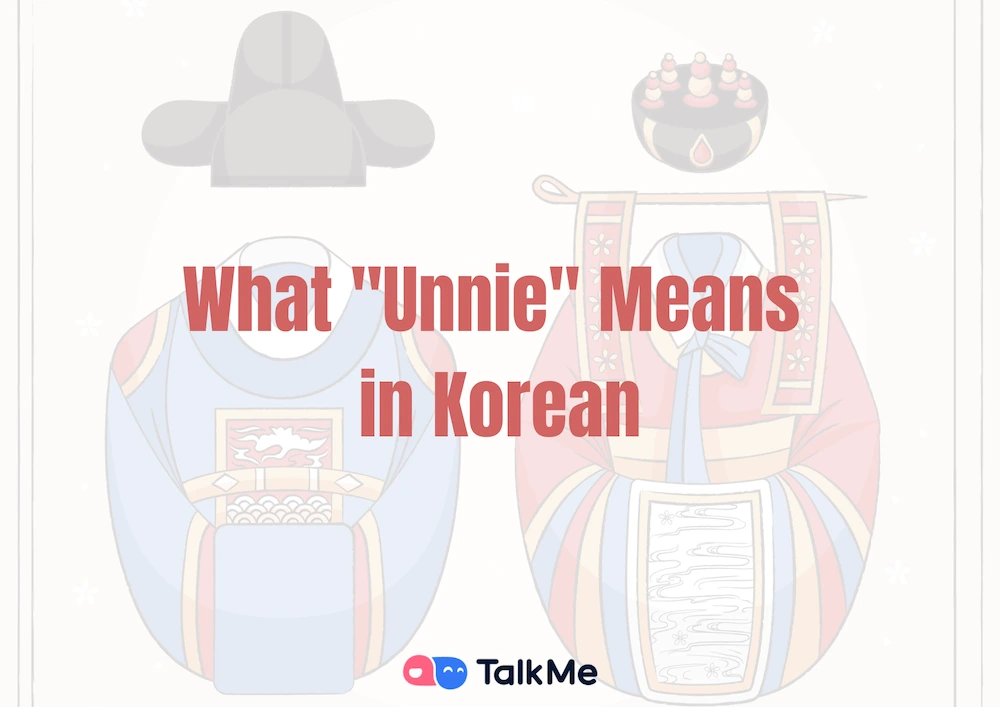 One of the most common honorifics among Korean females is “unnie (언니)”. But what exactly does unnie mean, and when is it appropriate to use? Whether you’re learning Korean or just a fan of Korean culture, understanding unnie in Korean adds nuance to your conversations and media experiences.
One of the most common honorifics among Korean females is “unnie (언니)”. But what exactly does unnie mean, and when is it appropriate to use? Whether you’re learning Korean or just a fan of Korean culture, understanding unnie in Korean adds nuance to your conversations and media experiences.
So, what does unnie mean?
In short: Unnie (언니) means older sister, but it’s used more broadly by females addressing older females with whom they have a close or familiar relationship. Let’s explore its full meaning and usage.
What Does “Unnie” Mean in Korean?
The literal unnie meaning in Korean is older sister, used by a younger female to refer to an older female. It can be a biological sister or someone emotionally close enough to be treated like one.
In Korean, age-based hierarchy is deeply rooted in the language. That’s why words like unnie, oppa, and hyung exist — they reflect not only age but also respect and closeness.
Who uses “unnie”?
- A younger sister calling her biological older sister
- A female friend speaking to an older female friend
- A female fan referring to a female idol
- Occasionally, in casual service settings like cafés or salons
The term also appears in its alternate spelling, “unni”, which is simply a phonetic variation. So if you’ve seen unni Korean meaning, it’s the same as unnie — just written differently.
When and How to Use “Unnie”
Korean speakers use unnie not only with family members but also in everyday social contexts. Let’s look at a few common scenarios where unnie in Korean makes perfect sense:
Talking to Your Older Sister
If you’re a younger girl with an older sister, “unnie” is the default way to address her.
Example:
언니, 같이 영화 보자.
Unnie, let’s watch a movie together.
Addressing Older Female Friends
Korean girls often call slightly older female friends “unnie” to show both friendliness and respect.
Example:
수지 언니는 진짜 친절해요.
Suji unnie is really kind.
Calling a Waitress or Stylist (Casually)
In casual or friendly settings, you might hear a female customer use “unnie” when calling a female staff member who looks slightly older.
Example:
언니, 여기 주문이요!
Unnie, I’d like to order here!
Referring to Older Female Idols
K-pop fans often refer to their favorite female idols as “unnie,” especially when the idol is older than the fan and the fan is female.
Example:
제니 언니 너무 예뻐요!
Jennie unnie is so pretty!
Using unnie appropriately shows you understand the relational subtleties of Korean culture.
“Unnie” vs “Noona” — What’s the Difference?
While unnie is used by females to address older females, noona (누나) is the male equivalent. It means “older sister,” but is used by males to refer to an older female in either a familial or friendly way.

Example of “noona”:
누나, 이거 도와줄 수 있어?
Noona, can you help me with this?
This distinction is important! Calling someone “unnie” when you’re male can sound odd or even disrespectful in Korean culture.
If you’re curious about other gendered honorifics, you might also want to explore the oppa meaning (used by females to refer to older males).
How Koreans Feel About Being Called “Unnie”
In Korea, being called “unnie” can evoke warmth and closeness — it’s not just a word, but a recognition of trust and affection.
Positive Feelings:
- It shows respect for age
- Suggests emotional intimacy
- Indicates social closeness
When It’s Not Appropriate:
- Don’t use “unnie” with someone you’ve just met, unless you’ve been invited to
- Avoid using it with someone significantly older unless the relationship is casual
- Some women may not like being reminded of the age difference
Understanding these emotional layers is crucial — it’s not just about language, but also about building respectful relationships.
Other Related Honorific Titles in Korean
Korean uses a variety of titles to convey age, gender, and relationship. Here are some you should know:
- Oppa (오빠): What a younger female calls an older male (brother, boyfriend, or male friend)
- Noona (누나): What a younger male calls an older female
- Hyung (형): What a younger male calls an older male
- Sunbae (선배): Senior at school or work
- Hubae (후배): Junior at school or work
- Chingu (친구): Same-age friend
- Dongsaeng (동생): Younger sibling or friend, regardless of gender
These terms are often tied to different levels of formality in Korean:
- 존댓말 (jondaetmal): Formal speech
- 반말 (banmal): Casual speech
- 높임말 (nopimmal): Honorific language
Learning to switch between these speech levels is essential — and that’s where AI tools like TalkMe can help.
Learn Korean Naturally with TalkMe AI
Understanding words like unnie, oppa, and hyung is only part of the picture. The real key to fluency is knowing when and how to use them in conversation — and that’s where TalkMe AI shines.
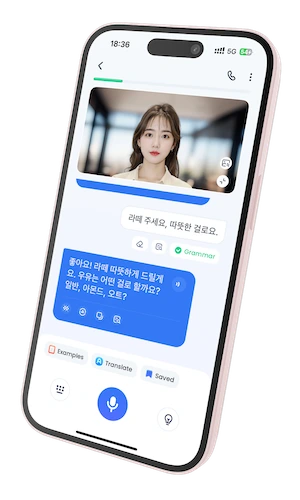
Why Use TalkMe AI?
- Conversational Practice with AI Tutors: Chat with AI characters who mimic native Korean speakers.
- Real-Time Feedback: Learn the correct usage of honorifics like unnie and oppa — and get instant corrections.
- Role-Play Scenarios: Practice introducing yourself to a new friend or ordering food in a café using natural language.
- Grammar + Cultural Insights: Beyond vocabulary, get tips on when it’s okay to use informal speech or honorifics.
- Web & Mobile Access: Perfect for on-the-go learners — study Korean anytime, anywhere.
TalkMe AI makes learning Korean engaging, realistic, and culturally informed — exactly what you need to master terms like “unnie.”
Summary & Key Takeaways
To wrap things up, let’s recap:
- Unnie (언니) means older sister, used by females addressing older females.
- It’s used in both familial and social contexts, from friends to celebrities.
- “Unnie” vs “Noona”: Unnie is for females; Noona is for males.
- Koreans value the use of “unnie” for its respect and emotional connection — but use it wisely.
- There are many related honorifics in Korean, and learning their usage is key to sounding natural.
Tip: The best way to internalize this? Use tools like TalkMe AI to get real-life practice in context!
FAQs
What does “unnie line” mean in K-pop?
In K-pop fandoms, the “unnie line” refers to the older female members of a girl group. It highlights age-based hierarchy within the group, often leading to playful dynamics.
Can foreigners use “unnie”?
Yes, but with caution. If you’re female and speaking Korean with someone older (and you’ve built rapport), using “unnie” is acceptable. Otherwise, it’s best to wait until you’re invited to use it.
Is it okay to call a stranger “unnie”?
Only in very casual settings like salons or cafés, and only if you’re female and the person looks a bit older. Otherwise, it may come off as too familiar or even impolite.
Ready to master Korean?
Start practicing real conversations and understanding cultural nuances with TalkMe AI — your AI-powered language tutor.

